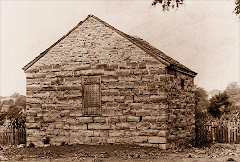 President Uchtdorf has taught “Hope.. is like the beam of sunlight rising up and above the horizon of our present circumstances. It pierces the darkness with a brilliant dawn. It encourages and inspires us to place our trust in the loving care of an eternal Heavenly Father, who has prepared a way for those who seek for eternal truth in a world of relativism, confusion, and fear” (The Infinite Power of Hope)
President Uchtdorf has taught “Hope.. is like the beam of sunlight rising up and above the horizon of our present circumstances. It pierces the darkness with a brilliant dawn. It encourages and inspires us to place our trust in the loving care of an eternal Heavenly Father, who has prepared a way for those who seek for eternal truth in a world of relativism, confusion, and fear” (The Infinite Power of Hope)When considering the promise of salvation made possible through the atonement of Jesus Christ, and His just and merciful judgments, is it possible for a person to have too much hope for the attainable joys of eternal families and exaltation? Or is it possible to forfeit the opportunity of having an eternal family or benefit from the atonement’s saving power, with certain actions or failures? Does our death constitute the end of our chance to repent, eternally closing the door on all access to the fruits of the atonement? No.
The prophet Joseph Smith taught, “It is an opinion which is generally received, that the destiny of man is irretrievably fixed at his death, and that he is made either eternally happy, or eternally miserable; … however orthodox this principle may be, we shall find that it is at variance with the testimony of Holy Writ, for our Savior says, that all manner of sin and blasphemy shall be forgiven men wherewith they shall blaspheme; but the blasphemy against the Holy Ghost shall not be forgiven, neither in this world, nor in the world to come, evidently showing that there are sins which may be forgiven in the world to come.” Repentance is essential for the personal progression of the true believer, both in this life and the next, until the ultimate exaltation is conferred by our Heavenly Father.
We are taught in the scriptures repeatedly that our mortal lives are a probationary state in which we are to prepare to meet God by keeping His commandments, yet we are also taught that we do not earn salvation, for it is only through the Grace of Christ that we may be saved. During our lives we are to come unto Christ, exercising our faith in Him by following His example, and repenting continually.
We know that those who have not received the gospel during their life will be judged according to the light and truth they had received and will not be accountable for the light and truth they had not received. These people will have the opportunity to be taught in the spirit prison and will exercise agency in deciding to accept or reject the gospel after receiving their ordinances vicariously. We also know that some in spirit prison are those who “sometimes were disobedient”. These are the individuals who received at least a portion of truth and knowledge but were disobedient to that truth. Will members of the church fall into this “disobedient” category? I suspect many will. So which sins, and under what circumstances can these sins be forgiven after this life? I have no idea, and neither do you, but it would be foolish for a person to go through life purposely breaking the commandments of God with the expectation that all could be repented of after this life. However, we cannot close the door of hope on the person who dies a sinner.
Think of Alma the Younger. He was living a wicked and rebellious life, damaging the testimonies and pulling many away from the church of God. According to our orthodox thinking, if he had died after being kicked in the head by a horse, prior to witnessing the angelic vision and his subsequent repentance, Alma would have been damned, and lost forever. However, fortunately for him, he was granted time to repent of his sins and he ultimately became a great spiritual leader. Does it stand to reason that the capricious timing of an individual’s death would determine the individual’s eternal standing with God? Would a rebellious young man be lost forever because he was unfortunate enough to die accidentally prior to taking the opportunity to repent and set his life right?
Joseph Smith said, “It is common for many of our orthodox preachers to suppose that if a man is not what they call converted, if he dies in that state he must remain eternally in hell without any hope. Infinite years in torment must he spend and never, never, never have an end; and yet this eternal misery is made frequently to rest upon the merest casualty [chance]”. There must be opportunities for repentance after death, or else why would the Savior have gone to teach the spirits in prison? Did he intend to leave them there? No. He went to deliver and set them free.
To be continued...























No comments:
Post a Comment